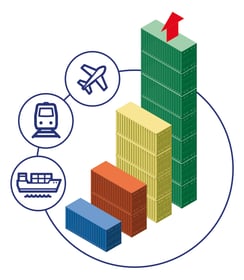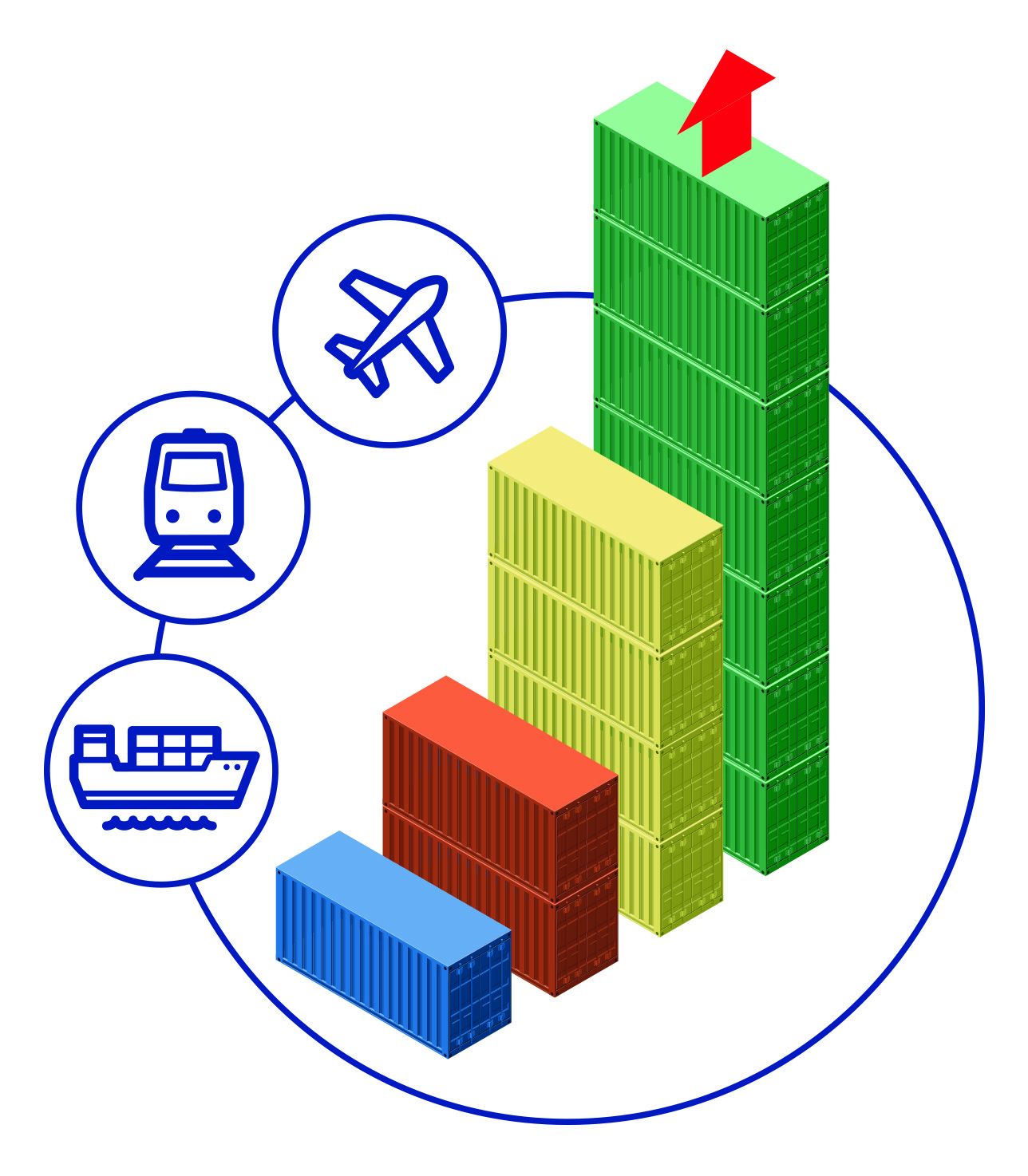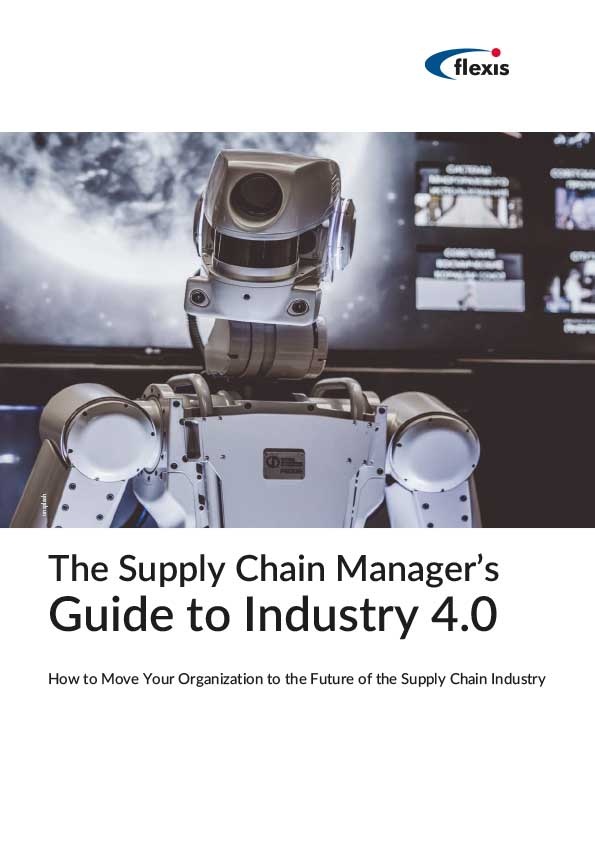Is There an Argument Against Transport Logistics?
Brian Hoey - January 11, 2018

 Even with the continuing rise of Industry 4.0, many companies treat transportation scheduling as something of an afterthought. Sure, many businesses have restocking rules and recurring transportation orders that are carried out on identical timetables every set number of weeks or months, but today relatively few manufacturers employ a truly robust solution for scheduling transportation. We’ve spent time on this blog touting the importance of transport logistics, but ours is obviously not the only opinion on the subject. Let’s take a few minutes to discuss some of the potential arguments used against it.
Even with the continuing rise of Industry 4.0, many companies treat transportation scheduling as something of an afterthought. Sure, many businesses have restocking rules and recurring transportation orders that are carried out on identical timetables every set number of weeks or months, but today relatively few manufacturers employ a truly robust solution for scheduling transportation. We’ve spent time on this blog touting the importance of transport logistics, but ours is obviously not the only opinion on the subject. Let’s take a few minutes to discuss some of the potential arguments used against it.
1. It’s too expensive, especially for smaller companies
One of the most frequently-cited objections to the sort of scheduling solution we’re discussing is expense. Some argue that the cost of licensing and implementing sophisticated software solutions is too great to be outweighed by any potential benefits. After all, how much money is there to be saved by managing one’s transportation needs differently?
As it happens, the answer is “a lot.” True, solutions can be expensive, but most businesses find that their ROI more than makes up for the investment. This can be attributed to a few factors:
- Transportation is not a fixed cost, meaning that it can be reduced through more efficient utilization.
- By optimizing routes, hub use, and other factors, businesses can shorten lead times, uncover waste areas, and create more optimized future plans.
- Real-time planning, which is a pillar of successful transport solutions, increases visibility, which offers even more chances for cost saving.
At the end of the day, most companies are in a position to more meticulously tailor their supply stream transportation to their optimal capacity utilization to reduce excess stock and its associated costs. Meanwhile, by better predicting transport needs ahead of time (in part by analyzing past conditions), it is often possible to move towards a leaner transport strategy by optimizing routing, container levels, and distribution networks.
2. It’s irrelevant to digitization and incompatible with Industry 4.0
Even once cost savings have been factored in, some businesses raise objections to smarter transport solutions on a more philosophical basis. Their argument is that, while transport logistics has the power to save money, it cannot be part of a broader push toward digitization and the adoption of Industry 4.0 principals. This, too, is erroneous. In fact, smarter transportation planning can be part and parcel with the technological innovations that underpin Industry 4.0 value chains.
By offering manufacturers mission critical data, reporting, and notifications in real time, a smart transport scheduling solution can yield new insights and smarter processes that integrate fully with analytics-based supply chain management. As production processes become more thoroughly digitized, and therefore more flexible and adaptable, shouldn’t transport scheduling keep pace? Better yet, shouldn’t these processes be part of a cohesive whole?
Ultimately, the connective tissue between Industry 4.0, digitization, and transport logistics is not just a common push toward smarter systems, but a renewed emphasis on visibility. Effective transport solutions can and should be based on E2E visibility, bringing new data about current processes to light while removing decision-making siloes and informational irregularities. Planners should be empowered to see a holistic vision of their transport operations, and the complex interrelations between transport needs and production capacity, customer requirements, and freight/hub capacity. In this way, transport planners can identify an array of changing variables and constraints and meaningfully address them before they result in bottlenecks or breakdowns. Just as industry 4.0 illuminates and adds clarity to the connections between disparate points on the value chain, transport logistics helps connect often-complex networks of partners and processes.
3. It will confuse my suppliers and add no value for my customers
We’ve seen how a changed approach to scheduling transport can add value, as well as the ease with which it can be integrated into Industry 4.0 frameworks. But one significant argument remains to be dealt with: why should companies adopt a solution that will make things more difficult for their suppliers while adding no new value for customers? Certainly any disruptive change in process within your supply stream stands to have a ripple effect across value points; and with no obvious client-side improvements it may seem difficult to justify a big change. The best transport solutions, however, take these objections in stride.
Software solutions will be easy to use:
- They will feature intuitive interfaces that give users, including suppliers, access to up-to-the-minute data on orders created, stock, capacity, and timetables to ensure complete transparency at both tailends of the supply chain.
- This will eliminate the use of outdated information and greatly ease cross-operational and inter-business communication.
Customers will benefit from receiving goods early or on-time more consistently:
- More transparent and adaptable systems will help to mitigate and prevent unforeseen disruptions in both production and shipping, ensuring that orders are shipped at the correct time to the correct location in the correct condition.
- Increased visibility and digitization will lead to transport processes that are both more cost effective and more predictable, i.e. more stable, resulting in more stable and transparent customer-side pricing.
While there may be some arguments against adopting a smarter transport scheduling solution, they invariably fail to account for tremendous scope of possible improvements it can lead to. In point of fact, rather than being a luxury for large companies, transport logistics represents a key value-added proposition for making the most of Industry 4.0.
LATEST POSTS
- Understand Circular Economy in The Manufacturing Industry
- How Can Industry 4.0 IT Integration Be Achieved Smoothly?
- The Significance of Order Sequencing in Discrete Manufacturing
- How to improve your Supply Chain Management: The Power of Control Towers
- Optimizing Human Resource Scheduling in Manufacturing: A Technological Approach



